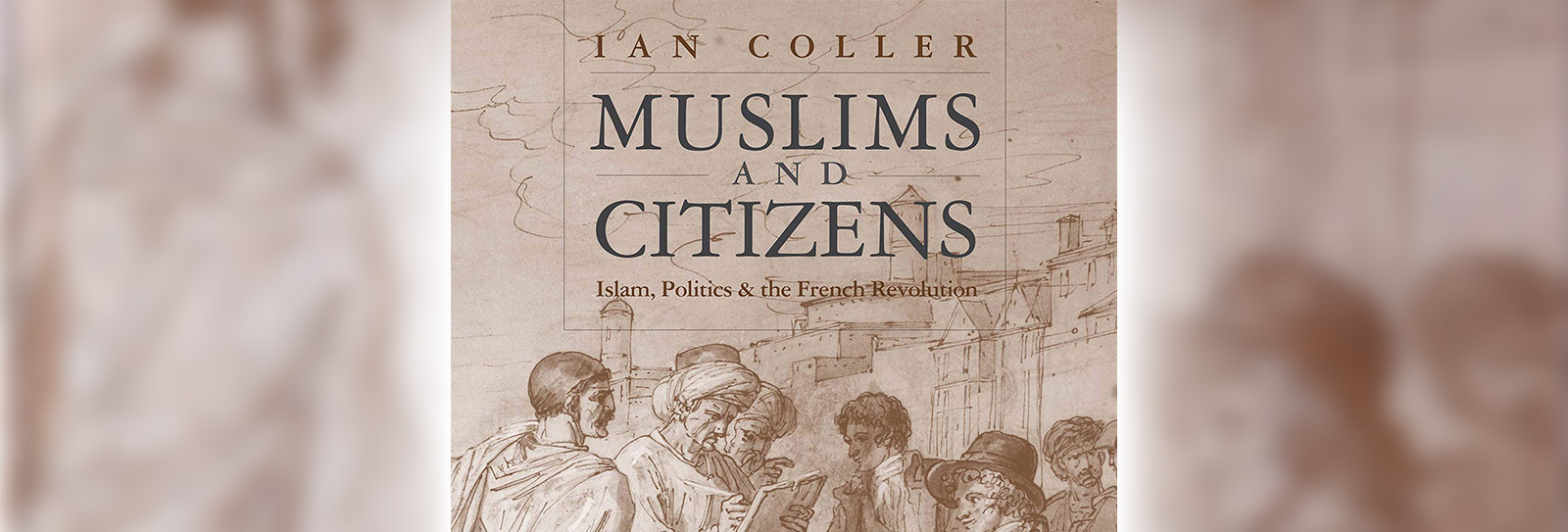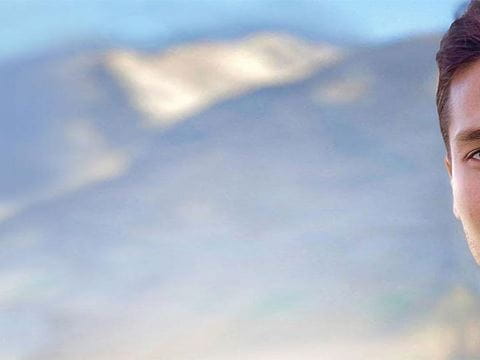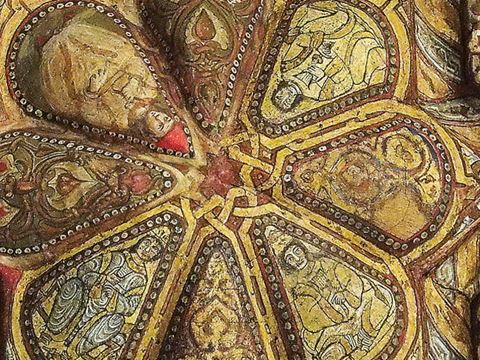
Australian Author Ian Coller on Muslims and the French Revolution
It wasn’t until he found himself thousands of kilometers from his native Australia in September 2001 that Coller, a UCLA-Irvine professor of history, began to realize that his seemingly disparate early interests in French culture, Charles Dickens’ A Tale of Two Cities, his longing to understand the Middle East and his determination to speak Arabic were all parts of his innate fascination with people.
It wasn’t until he found himself thousands of kilometers from his native Australia in September 2001 that Coller, a UCLA-Irvine professor of history, began to realize that his seemingly disparate early interests in French culture, Charles Dickens’ A Tale of Two Cities, his longing to understand the Middle East and his determination to speak Arabic were all parts of his innate fascination with people. But in the aftermath of 9/11, Coller realized that as much as he loved literature, his true passion was the past. Since then Coller has carved out a niche in his field by examining the evolution of ties between Muslims and Europeans over the centuries. He talked with AramcoWorld about his research and the story behind his latest book, Muslims and Citizens, which chronicles the influence of the Muslim world on the French Revolution.
How did you know you wanted to study history?
After my undergrad I traveled to the Middle East for the first time and got inspired to study Arabic. I was on my way to continue my studies in Damascus in September 2001, and I was stranded in India when September 11 happened, and that was when I decided that history really meant something to me. I realized that it was important to study not just how peoples end up in conflict with one another but also how they live and coexist together. That was what inspired me to go back to Australia and enroll in a Ph.D. program for history. And, of course, I found plenty of conflict, but I also found a lot of coexistence. And I wanted to know more about that, so I kept going.
Much of your work is part of a broader trend in the history field that explores the global context of events. What does this viewpoint change about our understanding of the past?
European history has never happened in a bubble. Europe has clearly had an enormous impact on the globe, and that impact has not always been a positive one. It’s a very complex and ambivalent legacy, and in a way the most dangerous part of that legacy is this essentialism, the way in which the whole history of the world has ended up being told as if Europe or any other place was naturally at its center. That’s the broader point that really needs to be understood, that European history, like all history, unfolds in a global context.
How did you find the focus of your work, the connections between the Muslim world and Europe, especially France?
Before I decided I wanted to study history, I had pitched a book to a historian I knew about the history of the Arabic community in Paris, and he was very excited about it, even though he was a French social historian who had never studied the Middle East. So, I became a French historian. But the path to that was a complete reverse, with my interest in the Middle East leading me to Europe. There was a certain sense of inevitability though. I dressed up as a French Revolutionary for that costume party years ago because those were my heroes, and I studied A Tale of Two Cities as part of my undergrad thesis. So finding connections between these two things was really a convergence of two topics that fascinated me.
What inspired you to dive into research for Muslims and Citizens?
My previous research on the first Arab population in France, which I discovered was established a lot earlier than most people ever imagined. A lot of the people in the Arab population who moved to France before 1798 were Arab Christians, while Muslims were much less frequently represented. I started looking for places in French history where Muslims were more present in the record, and it all came down to the French Revolution, a time when the leaders of that movement were intent on welcoming all people no matter their race or religion. I wanted to know more, and eventually I had a book.
Was there anything you discovered in your research that truly surprised you?
The fact that nobody seemed to know a thing about it. It’s amazing how many times I tell people about how the French and Muslims have been impacting each other, and they’re so shocked. And that’s incredible to me, given that Algeria is as close, as the crow flies, as Marseilles is to Paris. The Muslim world is so close to France, and there has been connection, and colonialism, between France and the Muslim world for centuries, dating back to the Crusades and stretching down to the large French Muslim population the country has today. What surprised me most once I started working on this was how much these connections surprised everyone else.
What does this shift away from a Eurocentric view of history help us better understand?
There’s still this old sense that the rest of the world was somehow just frozen in time and ignorant while Europe was leaping forward into the age of modernity. That’s just not the case. Fortunately, some historians have been dismantling those ideas, these approaches that have blocked and impoverished our view of history. Europe was not living in a bubble, and Europeans were not the only people on Earth who had historic agency. The world was connected even back then, and just as the ideas of the Enlightenment spread and influenced other cultures, we are now realizing that there are connections between some of the ideas and the complex exchanges that were occurring between Europeans and the rest of the world.
What were some of the most challenging aspects of pursuing this specific aspect of French and Muslim history?
The hardest part was the places where history is silent. What I really wanted was to see everything from a Muslim perspective, not to just talk about how French people living in those times talked about and represented Muslims. The goal was to begin to grasp how Muslims in France or tied to France at the time understood and responded to the turbulent events and the expansive view of mankind that initially was a key part of the French Revolution. However, that’s still very difficult because the sources are still very sparse.
In addition to your research, you’ve spent a portion of your career training young historians. What are some of the most crucial things you have found that people need to understand about history?
I think a lot of people imagine history as something that’s dead, that it’s a set of facts in some books that historians worked out a long time ago and that’s the end of it. But it isn’t that simple. History is as much a reflection of our own lives and times as it is those of the past. There’s always a new perspective. Even talking about an event that happened yesterday, every person that lived through it will have their own perspectives and interpretations.
That’s why historians are here looking at things from the fresh perspective of the present. We aren’t trying to impose our own ideas and standards on events we’re reexamining, but we’re asking questions shaped by the world we’re living in today—and that’s perfectly legitimate.
You may also be interested in...

The Staying Power of 4stay
History
As an 18-year-old from Tajikistan new to Washington, DC, Akobir Azamovich Akhmedov could barely afford the city’s high rents. A dozen years later, he is cofounder and CEO of 4stay, where his plug-and-play approach to long-term accommodations is reshaping the market.
Part One From Pilgrim to Traveler: Tangier to Makkah
History
In 1325, Ibn Battuta was an aspiring Moroccan jurist who set out for Makkah along the North African coast, passing through Cairo and Damascus. But when the rites of the Hail ended, he didn’t go home: He continued east.
Palermo, Sicily: Where Cultures Collided and Still Coexist
History
As the Mediterranean Sea's largest and most central island, Sicily has lured invaders, traders and travelers since antiquity, and each one has left its layers of legacy. From the ninth to the 12th century, Arabs and Normans dominated the island. Along its western coast, in its capital Palermo, the Arab-Norman royal court of King Roger I rose to become one of the most influential seats of power of its time. Since 2015 the UN has recognized a set of nine buildings whose syntheses of Byzantine, Arab and Norman designs epitomize the best of a time whose multiculturalism remains a foundation for Palermo today.

